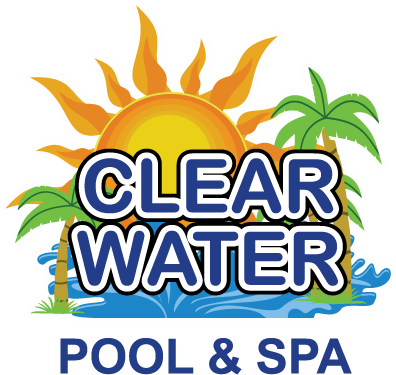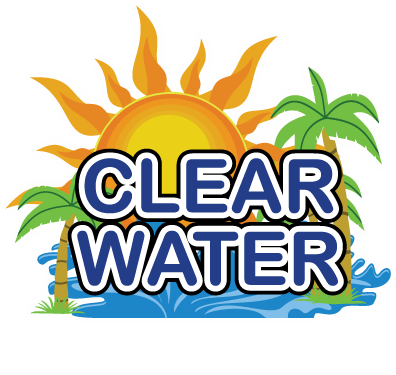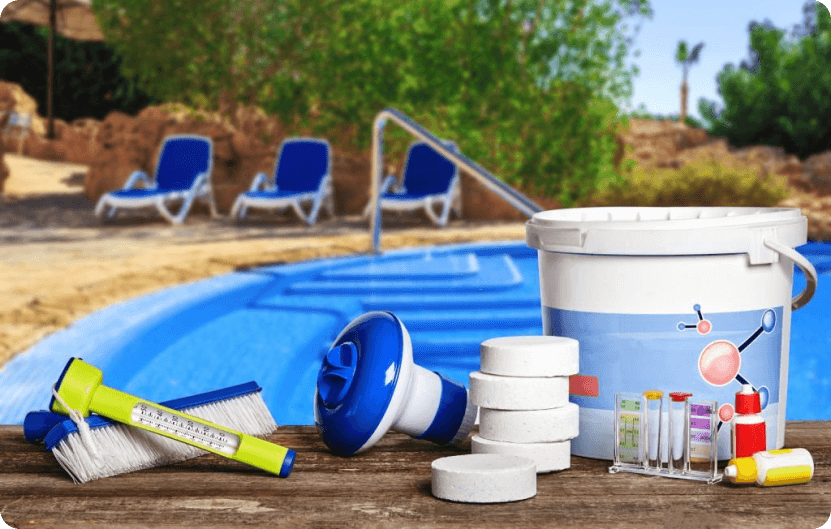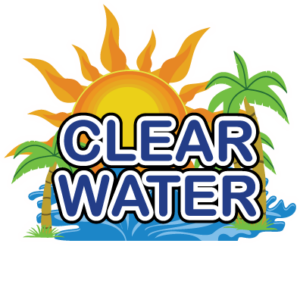Introduction:
Whether nestled in your backyard or found at a community center, a pool offers numerous advantages for your physical and mental well-being. The soothing sensation of cool water against your skin, the rhythmic strokes of swimming, or simply lounging by the poolside – all these activities contribute to a healthier you. However, amidst these pleasures, there’s a crucial aspect that often goes unnoticed but is paramount: the chemistry of the water.
Chlorine is one of the most crucial elements in maintaining a clean and safe swimming environment. Widely recognized for its ability to sanitize pool water, chlorine is pivotal in warding off harmful bacteria and pesky algae. However, like any chemical agent, achieving the right balance is key. The dilemma is: How much chlorine should be added to your pool to strike that perfect equilibrium between cleanliness and safety?
Clear Water Pool and Spa is your trusted pool chemical store in Corpus Christi, helping provide you with the expertise and products necessary to maintain your pool. In this blog, we’ll delve into the realm of pool maintenance, with a particular focus on the critical significance of proper chlorine usage. So read on!
Why is Chlorine Important for Pool Maintenance?
Chlorine is essential in pool maintenance due to its powerful disinfectant properties. Its significance becomes evident when we consider what can happen without effective disinfection.
Without proper disinfection, pool water can quickly become a breeding ground for undesirable elements such as algae, bacteria, and microorganisms. Allowing these organisms to thrive can pose significant health risks to anyone enjoying a swim.
Chlorine releases free available chlorine (FAC) into the pool water. FAC then engages with contaminants like sweat, oils, and even urine, forming compounds known as chloramines.
Although chloramines result from the disinfection process, they can adversely affect swimmers.
They are notorious for causing skin irritation, eye discomfort, and respiratory issues, emphasizing the importance of maintaining the correct chlorine balance in the pool water to prevent the excessive buildup of chloramines.
Beyond its disinfectant role, chlorine also plays a crucial part in stabilizing the pH level of pool water. Maintaining a stable pH level within the range of 7.2 to 7.6 is critical in creating a comfortable and enjoyable swimming environment. Additionally, chlorine contributes to protecting pool equipment from potential damage.
However, it’s worth noting that excessive chlorine levels can lead to skin irritation and potential harm to pool equipment. Conversely, insufficient chlorine levels can render the water vulnerable to harmful microorganisms. Striking the right balance is vital to maintaining a clean, safe, and enjoyable pool experience.
Ideal Chlorine Value for Your Swimming Pool
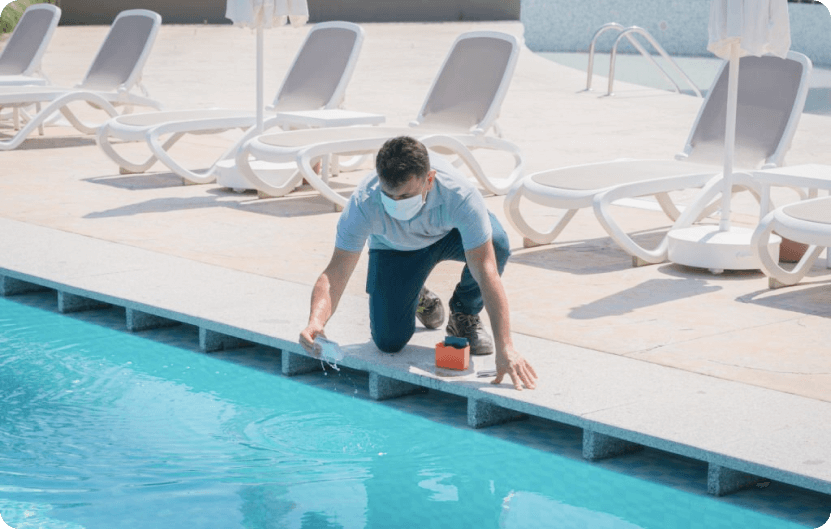
Determining the ideal chlorine level for your swimming pool is crucial to effective pool maintenance. Chlorine comes in various forms, such as granules, tablets, and liquids, but granular chlorine is the most commonly used type for residential swimming pools.
The recommended chlorine value for your pool should ideally fall within the range of 1 to 1.5 parts per million (ppm). To determine the amount of chlorine needed to achieve this desired level, you’ll first need to know the volume of your pool in gallons. Think of this process as similar to using a chlorine calculator.
Once you have this information, you can use the following formula: Chlorine required (in ounces) = (pool volume in gallons x desired chlorine level in ppm) / 10,000.
During the swimming season, it is advisable to check these chlorine levels at least twice a week to ensure they remain within this range. Using a manual test kit is best for testing, or for added convenience, you can opt for a digital device that continuously monitors water quality and transmits the data to a smartphone application.
However, Clear Water Pool and Spa offers the WaterLink Spin professional water analysis lab for those seeking the utmost precision in determining chlorine levels. This advanced tool can assist you in achieving and maintaining crystal-clear water. The process is straightforward: fill a clean bottle with pool water and visit our store for precise testing and guidance.
Our pool maintenance experts in Corpus Christi are here to ensure your pool water remains in optimal condition, providing you with a safe and enjoyable swimming experience.
How Often Should You Add Chlorine in Your Pool
The frequency of chlorine additions will vary depending on several factors, including the size of your pool, the number of swimmers, and the prevailing temperature and weather conditions in your area.
Adding chlorine following periods of heavy pool use, such as hosting a pool party or after a significant rainstorm, is especially important. These events can dilute the chlorine in the water, making it necessary to restore the proper levels. You should add chlorine to your pool at least once a week to maintain the desired FAC level.
Additionally, chlorine can degrade when exposed to direct sunlight. Therefore, adding chlorine during the evening or early morning when the sun’s intensity is lower is advisable.
When adding chlorine to your pool, it’s crucial to adhere to the instructions provided on the product label and use the appropriate amount based on your pool’s size. If you find managing pool chemistry challenging, seek the assistance of professional pool cleaning services in Corpus Christi, who possess the expertise to ensure your pool remains safe and enjoyable for all swimmers.
Dealing with Excess Chlorine for a Balance Pool
Adding too much chlorine to your pool can lead to various problems, including:
- Skin and eye irritation
- Breathing issues if you inhale too much chlorine
- Quick deterioration of your pool’s lining
- Expensive repairs or even needing to replace the entire pool
- Unpleasant taste and smell in the pool water
- Fading or bleaching of swimwear, which can be costly
Fortunately, the solution is straightforward if you’ve added too much chlorine. Leave your pool’s roller shutter or cover open to let the sun’s UV rays naturally reduce the chlorine levels. Typically, within 24 hours, the excessive chlorine levels will decrease significantly.
Regularly check the chlorine value to ensure the chlorine levels stabilize within the desired range. When it reaches around 1 part per million (ppm), you can add a chlorine tablet to help maintain the appropriate level.
Dealing with Low Chlorine Levels
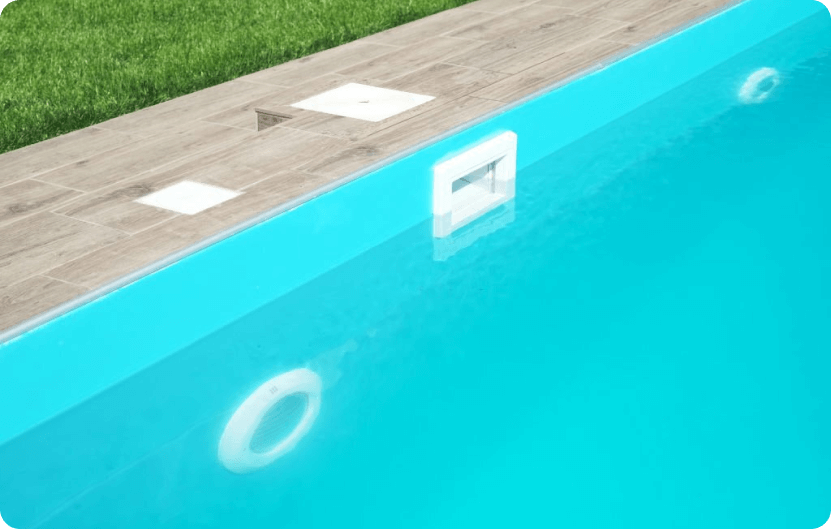
When you notice that the chlorine level remains below 1 ppm, it’s time to take action by administering a chlorine shock treatment to bring it back up to the proper range. This shock treatment is typically recommended when the chlorine level approaches (or hits) zero.
A chlorine shock treatment involves introducing an additional dose of chlorine to your pool to swiftly restore the chlorine content to its appropriate level. This procedure proves particularly useful in several scenarios:
- When Using the Pool for the First Time: If you’re preparing to use the pool for the first time, initiating it with a chlorine shock treatment helps ensure the water is safe and sanitized from the outset.
- Post-Winter Season: After the winter period, when the pool has been idle, it’s essential to rejuvenate the chlorine levels to maintain water quality.
- Following a Vacation Period: After a holiday break during which water quality checks may have been overlooked, a chlorine shock can help re-establish a healthy pool environment.
- After Busy Pool Days: Following a bustling weekend of pool activity with numerous swimmers, chlorine levels may drop noticeably. In such cases, a chlorine shock treatment is the swiftest way to restore proper chlorine content.
In these scenarios, adding the regular chlorine dose may not suffice to elevate chlorine levels to their required range. Hence, resorting to chlorine shock treatment becomes the most effective means of rectifying the situation swiftly.
Chemicals For Pools from Clear Water Pool And Spa
Ensuring your pool’s chlorine levels is essential to effective pool maintenance. The information provided above offers valuable insights into maintaining your pool’s chlorine levels, regardless of your pool’s size or experience level.
If you find yourself in need of swimming pool cleaning chemicals for your home pool, don’t hesitate to get in touch with Clear Water Pool and Spa. We are the trusted pool store in Corpus Christi, providing a comprehensive selection of pool chemicals, accessories, and expert cleaning and pool repair services tailored to your requirements.
